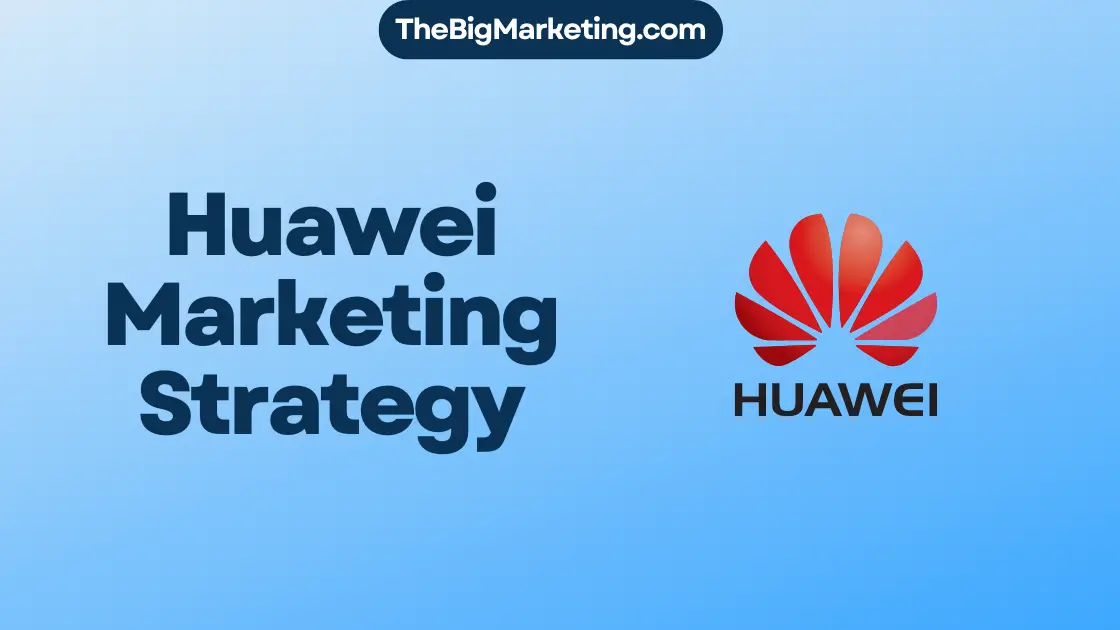Tmall, also known as Taobao Mall, is a Chinese e-commerce platform owned by Alibaba Group. It was launched in 2008 and has since become the most popular online gateway for local and international retailers in China. With over 500 million monthly active users, Tmall has established itself as the third most visited website globally. Its marketing strategy focuses on providing a premium shopping experience for Chinese consumers, attracting both international and Chinese brands to set up storefronts on the platform.
Tmall’s success can be attributed to its segmentation and targeting of the B2C market, as well as its innovative marketing campaigns and use of data analytics. The platform is at the forefront of the Alibaba e-commerce platform, which dominates the Chinese online marketplace.
Key Takeaways:
- Tmall is a leading Chinese e-commerce platform owned by Alibaba Group.
- It focuses on providing a premium shopping experience for Chinese consumers.
- Tmall targets both international and Chinese brands to set up storefronts on the platform.
- The platform’s success is due to its segmentation and targeting of the B2C market.
- Tmall uses innovative marketing campaigns and data analytics to drive growth.
Segmentation, Targeting, and Positioning
Tmall’s marketing strategy centers around effective segmentation, targeting, and positioning to cater to its diverse consumer base.
The platform primarily focuses on the B2C e-commerce market, providing a seamless shopping experience for Chinese consumers. Tmall’s target market includes digital-savvy individuals with higher education levels who are more likely to engage in online shopping.
By continuously enhancing service quality and offering competitive prices, Tmall has successfully retained existing customers while attracting new ones. The platform’s ability to accommodate both international and local Chinese companies allows for a wide range of products, offering consumers access to leading international brands alongside domestic options.
Tmall positions itself as the go-to e-commerce platform in China by constantly expanding its product range, ensuring accessibility to a vast array of goods. The platform’s commitment to customer satisfaction and emphasis on a premium shopping experience have further solidified its position in the Chinese e-commerce space.
| Tmall Target Market | B2C E-commerce | International Brands | Chinese Consumers |
|---|---|---|---|
| Tmall primarily targets digital-savvy consumers with higher education levels. | The platform focuses on the B2C e-commerce market, catering to individual consumers. | Tmall allows international brands to establish storefronts on the platform, providing Chinese consumers access to leading global brands. | Tmall’s main customer base consists of Chinese consumers, with over 500 million monthly active users. |
Through effective segmentation, precise targeting, and strategic positioning, Tmall continues to innovate and satisfy the ever-evolving needs of its diverse customer base, solidifying its position as a leading e-commerce platform in China.
Marketing Campaigns
Tmall has been highly successful in engaging its target audience and driving brand awareness through impactful marketing campaigns. One notable collaboration took place in October 2020, when Tmall partnered with Bravado to bring exclusive merchandise and collaborations by international recording artists to Chinese consumers. This partnership resulted in an array of exciting offerings in Tmall stores, featuring renowned artists such as Guns N’ Roses, The Rolling Stones, and Taylor Swift. The campaign generated significant excitement and enthusiasm among music enthusiasts, leading to a surge in sales and brand visibility.
In addition to collaborations with internationally renowned artists, Tmall also leverages the power of virtual influencers to enhance its marketing campaigns and consumer engagement. One such influencer is Ayyi, who is at the forefront of Tmall’s virtual influencer movement. Through the creation of virtual streets and interactive installations, Tmall creates a unique and immersive shopping experience for its customers. These avant-garde approaches generate hype around the platform’s offerings and captivate the attention of its target audience.
Images of the artist collaborations and virtual influencer engagements can effectively illustrate the impact of Tmall’s marketing campaigns:
| Key Highlights of Tmall’s Marketing Campaigns: |
|---|
| • Exclusive collaborations with internationally renowned artists, creating unique offerings for the Chinese market. |
| • Virtual influencers like Ayyi used to captivate and engage the target audience through innovative experiences. |
| • Immersive virtual streets and interactive installations that generate excitement and buzz for Tmall’s products. |
Tmall’s marketing campaigns have proven to be highly effective in creating a strong connection with consumers and increasing brand loyalty. By partnering with international artists and leveraging virtual influencers, Tmall continues to drive engagement and establish itself as a leading e-commerce platform in China.
Mobile Marketing and Social Media
Tmall recognizes the importance of Tmall mobile marketing in China, where the country boasts the largest mobile market globally. To effectively reach Chinese consumers, Tmall prioritizes optimizing its website for mobile devices and harnesses the power of popular social media platforms like WeChat and Weibo.
WeChat and Weibo are key players in the Chinese social media landscape, with millions of active users. Tmall leverages these platforms not only for targeted advertising but also for customer interaction and content sharing. By establishing a strong presence on social media, Tmall can effectively connect with its target audience and drive engagement.
Through WeChat, Tmall taps into its vast user base and utilizes features like WeChat Moments advertising to display tailored content to users based on their preferences and interests. WeChat Official Accounts allow Tmall to provide real-time updates, share promotions, and interact directly with customers through instant messaging.
Weibo, on the other hand, offers Tmall the opportunity to engage with users through a microblogging platform. Tmall can share product showcases, exclusive offers, and user-generated content to create buzz and generate brand awareness among its audience.
By strategically leveraging mobile marketing and social media platforms, Tmall maximizes its reach and engagement, creating a seamless shopping experience for its customers.
Examples of Tmall’s Mobile Marketing and Social Media Strategies
- Targeted advertising through WeChat Moments to showcase relevant products to users
- Regular updates and promotions shared through WeChat Official Accounts
- Engagement with users on Weibo through microblogging and user-generated content
- Collaborations with popular influencers and Key Opinion Leaders (KOLs) on social media platforms
| Over 1.2 billion monthly active users, making it one of the most widely used apps in China. | Over 550 million registered users, with more than 200 million monthly active users. |
| Offers various features such as Moments, Official Accounts, Mini Programs, and WeChat Pay. | Allows users to share short messages, images, and videos, with real-time interactions. |
| Enables targeted advertising to reach specific user segments based on demographics and interests. | Supports the use of hashtags and trending topics to increase content visibility and engagement. |
Big Data Analytics and Personalization
Tmall leverages the power of big data analytics to provide personalized shopping experiences to its customers. By utilizing advanced analytics tools, Tmall analyzes consumer behavior, preferences, and purchasing history to gain valuable insights. This data-driven approach allows Tmall to offer tailored product recommendations and enhance customer satisfaction.
Through the analysis of big data, Tmall can understand its target audience better and deliver relevant content and offers to each individual customer. This personalized approach not only improves the shopping experience but also builds stronger relationships between Tmall and its customers, leading to increased customer loyalty.
With a comprehensive understanding of consumer preferences, Tmall can anticipate their needs and desires, creating a more intuitive and convenient shopping experience. By offering personalized recommendations, customers can discover new products that align with their interests and enhance their overall satisfaction.
Tmall’s big data analytics also enable the platform to identify emerging trends and stay ahead of the competition. By continuously analyzing data and monitoring consumer behavior, Tmall can adapt its offerings and marketing strategies to meet evolving customer demands. This data-driven approach helps Tmall maintain its position as a leading e-commerce platform in China.
The Benefits of Personalized Shopping Experiences
Personalized shopping experiences provide several benefits to both customers and businesses. For customers, it enhances convenience by removing the need to search through a vast catalog of products. Instead, they are presented with tailored recommendations, saving time and effort.
Moreover, personalized shopping experiences improve customer satisfaction by ensuring that customers find products that align with their preferences and needs. This leads to a higher likelihood of repeat purchases and positive word-of-mouth recommendations, further driving business growth.
For businesses, the utilization of big data analytics and personalization allows targeted marketing efforts. By understanding individual customer preferences, businesses can create more effective marketing campaigns, resulting in higher conversion rates and increased revenue.
| Benefits of Tmall’s Big Data Analytics and Personalization |
|---|
| 1. Enhanced customer satisfaction through tailored product recommendations |
| 2. Improved customer loyalty and retention |
| 3. Anticipation of customer needs and desires |
| 4. Real-time adaptation to emerging trends |
| 5. Time-saving and convenient shopping experience for customers |
| 6. Targeted marketing efforts resulting in higher conversion rates |
Cross-Border E-Commerce
Tmall Global, the international arm of Tmall, provides a crucial gateway for international brands to enter the vast Chinese market. For Chinese consumers, Tmall Global offers access to a diverse selection of global products, meeting the rising demand for international goods. By expanding its cross-border e-commerce initiatives, Tmall has successfully attracted a growing number of international retailers, solidifying its position as a leading Chinese e-commerce platform.
This strategic approach capitalizes on the global e-commerce trend and ensures that Chinese consumers have access to a wide range of high-quality products from renowned international brands.
| Benefits of Tmall Global | Impact on Chinese Market |
|---|---|
| Tmall Global offers international brands a direct route to reach Chinese consumers, bypassing many traditional barriers to entry. | The entrance of international brands through Tmall Global has transformed the Chinese market, introducing new products and fostering healthy competition. |
| Tmall Global provides a seamless cross-border shopping experience, simplifying the purchasing process for both consumers and brands. | Chinese consumers now have access to a greater variety of global products, widening their choices and meeting their evolving needs. |
| Tmall Global’s extensive logistics network enables efficient and reliable delivery of international products across China. | The availability of global products through Tmall Global has significantly enhanced the overall shopping experience for Chinese consumers. |
Benefits and Impact of Tmall Global
By embracing cross-border e-commerce, Tmall has fostered strong partnerships with international brands and enriched the Chinese market with a diverse range of global products. This strategic expansion aligns with the evolving preferences of Chinese consumers and reflects Tmall’s commitment to providing an exceptional online shopping experience.
Website Optimization and SEO Strategies
Tmall understands the importance of website optimization and SEO strategies in enhancing its online presence. By adopting mobile-friendly design practices, such as responsive layouts and fast loading times, Tmall ensures that its website is accessible and user-friendly across various mobile devices.
Furthermore, Tmall leverages WeChat advertising, a popular mobile marketing channel in China, to reach its target audience effectively. WeChat is a widely-used social media platform that allows Tmall to connect with potential customers and promote its products and services.
Optimizing the website for mobile and implementing effective SEO strategies enables Tmall to improve its visibility in mobile search results, thereby attracting organic traffic to its platform. This allows Tmall to stay ahead in the highly competitive e-commerce market and drive continued growth.
Website Optimization Techniques
| Techniques | Description |
|---|---|
| Responsive Design | Creating a website that adapts to different screen sizes and devices, providing users with an optimal viewing and browsing experience. |
| Fast Loading Times | Optimizing website performance by minimizing page load times, ensuring a seamless and fast user experience. |
| Keyword Optimization | Implementing relevant keywords throughout website content, meta tags, and headings to improve search engine rankings. |
| Mobile SEO | Optimizing web pages specifically for mobile devices, including mobile-friendly URLs, structured data, and concise meta descriptions. |
| Content Quality | Creating valuable and engaging content that aligns with user intent, increasing the likelihood of higher organic rankings. |
By adopting these website optimization and SEO strategies, Tmall ensures that it remains at the forefront of the e-commerce industry, delivering a seamless user experience and attracting a larger customer base.
Content Marketing and Influencer Partnerships
Tmall recognizes the power of content marketing in building brand awareness and engaging its target audience. As part of its comprehensive marketing strategy, Tmall leverages a massive display advertising system and offers various paid digital marketing services to brands on its platform.
One of the key strategies Tmall employs is collaborating with influencers and brand ambassadors to promote its products. By partnering with influential individuals who have a strong presence and following on social media platforms, Tmall is able to reach a wider audience and effectively communicate its brand message.
These influencers leverage their influence and credibility to endorse Tmall’s products, showcasing their value and desirability. Through their sponsored content and promotions, influencers help create user-generated content, such as reviews and testimonials, which further reinforce the positive perception of Tmall in the eyes of consumers.
Brand partnerships play a significant role in Tmall’s content marketing efforts. By collaborating with renowned brands and creating exclusive partnerships, Tmall can offer unique and highly sought-after products to its customers. These partnerships also allow Tmall to tap into the established customer base of these brands, expanding its reach and attracting new customers.
In addition to influencer partnerships, Tmall actively encourages user-generated content. By featuring user-generated content on its platform, Tmall amplifies its brand message and engages customers in a more authentic and relatable way.
The combination of content marketing, influencer partnerships, brand collaborations, and user-generated content allows Tmall to build strong connections with its target audience, establish trust, and ultimately drive sales and brand loyalty.
The Power of Influencer Marketing
Influencer marketing has become an integral part of Tmall’s content marketing strategy. By partnering with influencers who align with the brand image and cater to Tmall’s target audience, the platform is able to tap into the influencers’ established followers and leverage their influence to promote its products effectively.
These influencers create engaging and authentic content featuring Tmall’s products, providing valuable recommendations and insights to their followers. Their endorsements and positive reviews play a crucial role in shaping consumer perceptions and influencing purchasing decisions.
Tmall also utilizes virtual influencers to enhance its marketing campaigns. These virtual influencers, such as Ayyi, have a strong online presence and can interact with users in unique and innovative ways. By leveraging virtual influencers, Tmall creates immersive experiences for its audience and captures their attention in a highly competitive digital landscape.
Collaborations and Partnerships
Tmall’s success in content marketing is largely attributed to its collaborations and partnerships with renowned brands. By partnering with these brands, Tmall is able to offer exclusive products and limited editions, creating a sense of exclusivity and desirability among consumers.
These collaborations not only attract new customers but also reinforce Tmall’s position as a leading e-commerce platform. By associating itself with well-established brands, Tmall enhances its credibility and solidifies its reputation as a trusted destination for high-quality products.
User-Generated Content
User-generated content plays a significant role in Tmall’s content marketing strategy. By featuring customer reviews, testimonials, and user-generated images on its platform, Tmall showcases the authentic experiences of its customers, building trust and credibility.
| Benefits of Content Marketing and Influencer Partnerships | Examples |
|---|---|
| Increased brand visibility and awareness | Tmall partnering with international artists to create exclusive merchandise |
| Authentic and relatable brand messaging | Tmall collaborating with influencers who have a genuine affinity for the brand |
| Enhanced customer engagement and loyalty | User-generated content showcasing customers’ positive experiences with Tmall |
| Expanded reach and customer acquisition | Tmall leveraging the established customer base of brand partnerships |
Conclusion
Tmall’s marketing strategy has been instrumental in its success as the leading e-commerce platform in China. Through effective segmentation, targeting, and positioning, Tmall has established itself as a trusted online gateway for both domestic and international retailers in the Chinese online marketplace. The platform’s innovative marketing campaigns, data analytics, mobile optimization, and social media strategies have further propelled its growth and dominance in the industry.
By continuously evolving and adapting to changing consumer trends, Tmall remains poised for e-commerce success in the future. The platform’s commitment to delivering a premium shopping experience and its focus on personalization through big data analytics have contributed to enhanced customer satisfaction and loyalty. Tmall’s expansion into cross-border e-commerce has also allowed it to cater to the increasing demand for international products in the Chinese market.
With its relentless pursuit of website optimization and SEO strategies, Tmall ensures its visibility and accessibility to the vast mobile market in China. Leveraging partnerships with influencers and brand ambassadors, Tmall effectively uses content marketing to engage its target audience and build authentic connections. This comprehensive approach, combined with its strategic positioning as a leading online platform, solidifies Tmall’s position as a major player in the Chinese e-commerce landscape.








